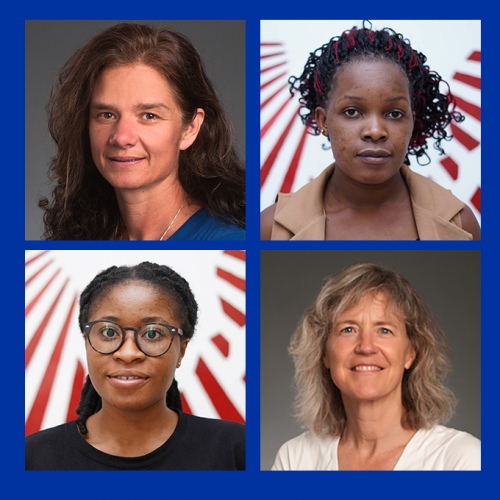
Mathematics professor Jodi Mead and associate professor Donna Calhoun recently received a National Science Foundation grant of nearly $550,000 over three years in order to computer model the transport of wildfire smoke. The goal of this work is to develop techniques to predict the smoke forecast in a given region, and then assess the accuracy of those computer modeled predictions.
“On the news now, just as they give the temperature and precipitation, they give a smoke forecast,” said principal investigator Mead. “But the issue that we’re trying to address is how accurate the forecast is because when you get into more rural areas, we don’t have as many observing systems.”
To further this research, Mead and Calhoun are working with two graduate students, Patricia Azike and Sandra Babyale. Both students graduated with masters from The African Institute for Mathematical Sciences in Rwanda. Azike is enrolled in Boise State’s doctoral Computing program, and Babyale is currently working at AIMS in Rwanda and will also start her Boise State doctorate in computing in spring 2022.
Together, the team of women is developing more accurate smoke transport models utilizing code that Calhoun has been developing over the past 10 years. This code will make it possible to include multiple inputs for variables such as wind and emissions that impact how much smoke is carried into an area.
Babyale began working on this research with Mead and Calhoun as a master’s student at The African Institute for Mathematical Sciences and says she is excited to explore the project to a greater extent.
“I love this project because it will help us solve some problems like we face in Africa since we also have a lot of biomass burning, and this produces a lot of smoke in the atmosphere,” Babyale said.
For Azike, this research is important because it melds together aspects of environmentalism and mathematics in an interdisciplinary way that could bear fruit for Africa and beyond.
“Sometimes I think environmentalists in Africa don’t actually work with mathematicians all the time, but to some extent, maybe this [research] will help suggest ideas and ways to curb air pollution,” Azike said.
For more information about this NSF award, visit: https://nsf.gov/awardsearch/showAward?AWD_ID=2111585&HistoricalAwards=false
-By Brianne Phillips